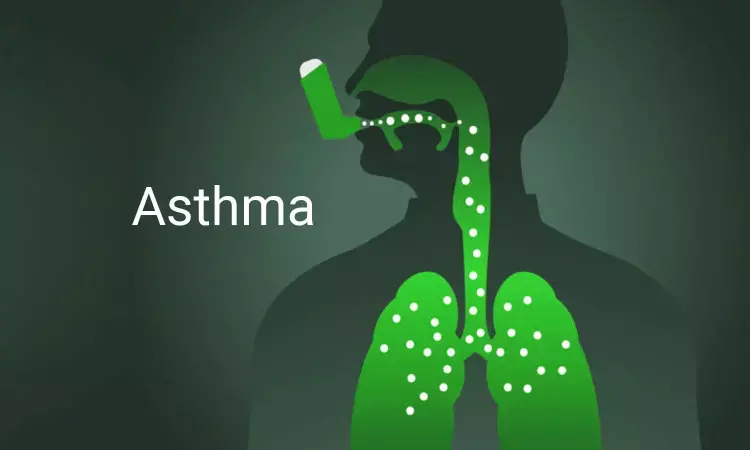- Home
- Medical news & Guidelines
- Anesthesiology
- Cardiology and CTVS
- Critical Care
- Dentistry
- Dermatology
- Diabetes and Endocrinology
- ENT
- Gastroenterology
- Medicine
- Nephrology
- Neurology
- Obstretics-Gynaecology
- Oncology
- Ophthalmology
- Orthopaedics
- Pediatrics-Neonatology
- Psychiatry
- Pulmonology
- Radiology
- Surgery
- Urology
- Laboratory Medicine
- Diet
- Nursing
- Paramedical
- Physiotherapy
- Health news
- Fact Check
- Bone Health Fact Check
- Brain Health Fact Check
- Cancer Related Fact Check
- Child Care Fact Check
- Dental and oral health fact check
- Diabetes and metabolic health fact check
- Diet and Nutrition Fact Check
- Eye and ENT Care Fact Check
- Fitness fact check
- Gut health fact check
- Heart health fact check
- Kidney health fact check
- Medical education fact check
- Men's health fact check
- Respiratory fact check
- Skin and hair care fact check
- Vaccine and Immunization fact check
- Women's health fact check
- AYUSH
- State News
- Andaman and Nicobar Islands
- Andhra Pradesh
- Arunachal Pradesh
- Assam
- Bihar
- Chandigarh
- Chattisgarh
- Dadra and Nagar Haveli
- Daman and Diu
- Delhi
- Goa
- Gujarat
- Haryana
- Himachal Pradesh
- Jammu & Kashmir
- Jharkhand
- Karnataka
- Kerala
- Ladakh
- Lakshadweep
- Madhya Pradesh
- Maharashtra
- Manipur
- Meghalaya
- Mizoram
- Nagaland
- Odisha
- Puducherry
- Punjab
- Rajasthan
- Sikkim
- Tamil Nadu
- Telangana
- Tripura
- Uttar Pradesh
- Uttrakhand
- West Bengal
- Medical Education
- Industry
Omalizumab reduces exacerbations of severe persistent asthma, Finds study

Researchers have recently found out that adding omalizumab to the treatment of patients with uncontrolled severe persistent asthma reduces the number of exacerbations, improving overall treatment effectiveness at an acceptable cost from a societal perspective.
The study is published in the Journal of Pulmonology.
A.Arrobas and colleagues from the Pulmonology Unit, Hospital Geral, Centro Hospitalar e Universitário de Coimbra, Portugal conducted the present study to estimate the cost-effectiveness of omalizumab compared with standard of care in the treatment and control of severe persistent asthma.
The investigators included a total of 62 patients with uncontrolled persistent allergic asthma. Response to omalizumab treatment was measured prospectively up to 24 months by the physician's Global Evaluation of Treatment Effectiveness (GETE).
Retrospective data on patients' clinical symptoms, asthma control, lung function, exacerbations, and healthcare utilization were available for up to 12 months before omalizumab initiation and served as the standard of care comparator.
The number of exacerbations (severe and non-severe), the number of clinical episodes, the number of days absent from work and/or school, and GETE response to therapy were considered as effectiveness outcomes.
Following a societal perspective, as cost indicators, both direct and indirect costs were considered. Direct costs relate to the cost of omalizumab, standard of care and clinical episodes (emergency room visits, hospitalizations, and unscheduled doctor visits). Indirect costs relate to the societal cost of work absenteeism. A univariate sensitivity analysis was performed.
The following interesting findings were highlighted-
- A rate of 1.5 exacerbations per patient-year was estimated following omalizumab treatment compared with 8.2 exacerbations per patient-year prior to omalizumab initiation, implying an 82.1% reduction in the incidence of exacerbations following omalizumab treatment relative to standard of care alone.
- A 54.1% reduction in GETE score was also observed in favor of omalizumab treatment.
- The mean cost per person-year was 3023є in the 12 months of standard of care prior to omalizumab and 16,111є in the period of treatment with omalizumab.
- The incremental cost-effectiveness ratios were 2244є/exacerbation avoided, and 1750є/unit decrease in GETE classification.
Hence, the authors concluded that "adding omalizumab to the treatment of patients with uncontrolled severe persistent asthma reduces the number of exacerbations, improving overall treatment effectiveness at an acceptable cost from a societal perspective."
Dr. Nandita Mohan is a practicing pediatric dentist with more than 5 years of clinical work experience. Along with this, she is equally interested in keeping herself up to date about the latest developments in the field of medicine and dentistry which is the driving force for her to be in association with Medical Dialogues. She also has her name attached with many publications; both national and international. She has pursued her BDS from Rajiv Gandhi University of Health Sciences, Bangalore and later went to enter her dream specialty (MDS) in the Department of Pedodontics and Preventive Dentistry from Pt. B.D. Sharma University of Health Sciences. Through all the years of experience, her core interest in learning something new has never stopped. She can be contacted at editorial@medicaldialogues.in. Contact no. 011-43720751
Dr Kamal Kant Kohli-MBBS, DTCD- a chest specialist with more than 30 years of practice and a flair for writing clinical articles, Dr Kamal Kant Kohli joined Medical Dialogues as a Chief Editor of Medical News. Besides writing articles, as an editor, he proofreads and verifies all the medical content published on Medical Dialogues including those coming from journals, studies,medical conferences,guidelines etc. Email: drkohli@medicaldialogues.in. Contact no. 011-43720751


